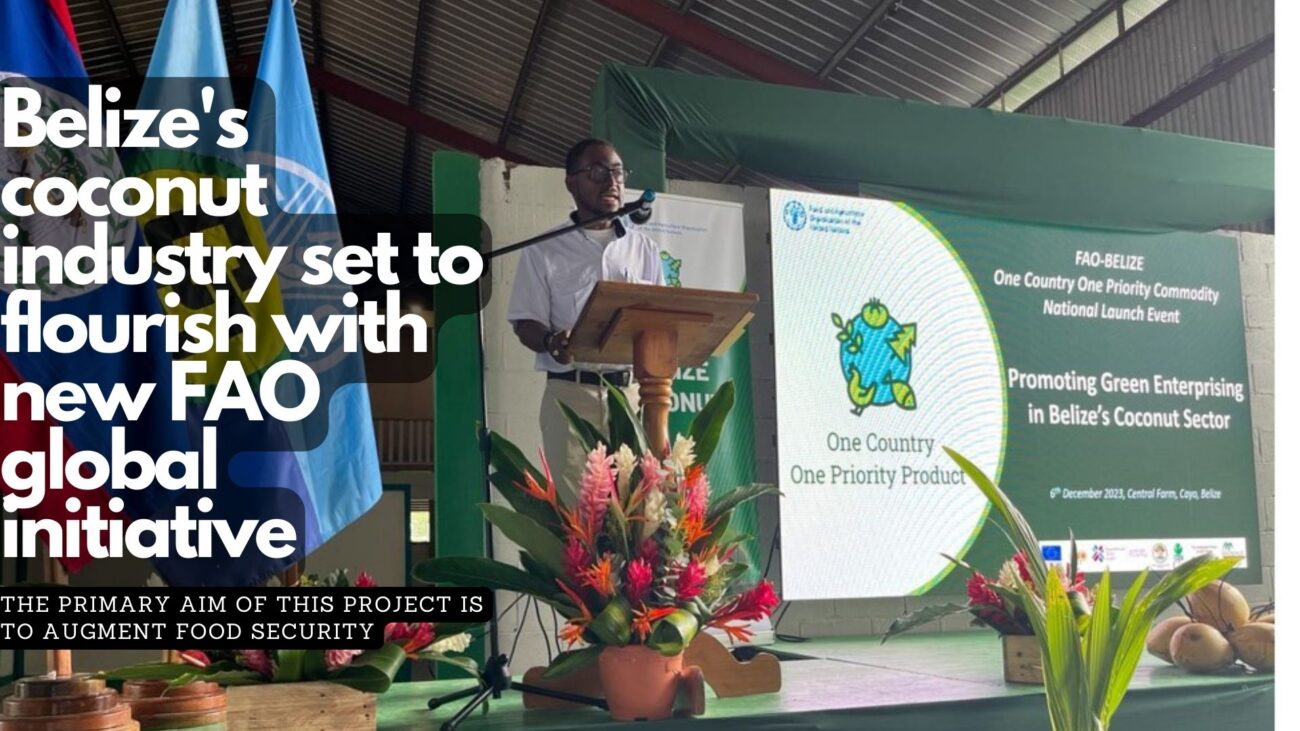Belize’s coconut industry set to flourish with new FAO global initiative
The FAO’s One Country, One Priority Product (OCOP) Initiative has kicked off its inception workshop, marking the beginning of a comprehensive project aimed at bolstering Belize’s coconut value chain. This global endeavor will facilitate the formulation of a thorough value chain analysis and a three-year sector development plan specifically tailored for coconuts in Belize.
On April 9, stakeholders from various sectors, including government bodies, non-governmental organisations, civil society representatives, project task force members, prominent technical experts, OCOP focal points, and FAO personnel from 11 project countries, congregated virtually to inaugurate this transformative project. The inception workshop focused on delineating project objectives, anticipated outcomes, major activities, and scrutinising the detailed project implementation roadmap and budget.

Participants at the OCOP Inception Workshop
The OCOP initiative, a flagship program of the FAO, is engineered to aid Member Countries in transitioning towards more efficient, inclusive, resilient, and sustainable agrifood systems by fortifying the value chains of Special Agricultural Products (SAPs). By championing sustainable practices in the production, storage, processing, and marketing of selected SAPs, OCOP contributes significantly to the empowerment of smallholders and family farms, in alignment with FAO’s Strategic Framework 2022–31 and the United Nations Sustainable Development Goals (SDGs).
Funded by the FAO Flexible Voluntary Contribution (FVC), the global project is slated for implementation from March 1, 2024, to December 31, 2025, with a total allocation of USD 1 million. Eleven countries stand to benefit from this initiative, each focusing on promoting a distinct SAP. These countries and their chosen SAPs encompass:
Belize (coconut) and Jamaica (ginger) from Latin America and the Caribbean.
– South Sudan (sorghum), Togo (rice), and Zambia (onion) from Africa.
– Bhutan (Quinoa) and Nepal (large cardamom) from Asia and the Pacific.
– Kyrgyzstan (walnut) and Tajikistan (apricot) from Europe and Central Asia.
– Algeria (fig) and Lebanon (pulse) from the Near East and North Africa.

Participants at the OCOP Inception Workshop
The primary aim of this project is to augment food security, livelihoods, environmental sustainability, and income generation for rural communities through the sustainable development of special agricultural product value chains.
With the participation of over 110 stakeholders, the inception workshop provided a platform for deliberating project implementation and exchanging challenges and priorities concerning the OCOP initiative at regional and national levels. To date, approximately 15 million has been mobilised to support 54 countries.
Activities in Belize entail the mobilization of a national task force and the formulation of a collaborative work plan in tandem with the Ministry of Agriculture, Food Security, and Enterprise since the launch of the regional OCOP.






Facebook Comments